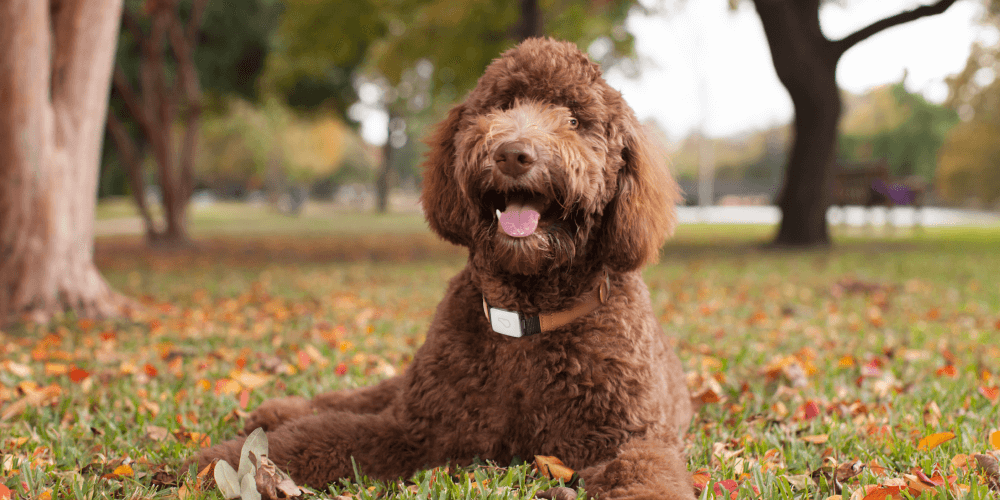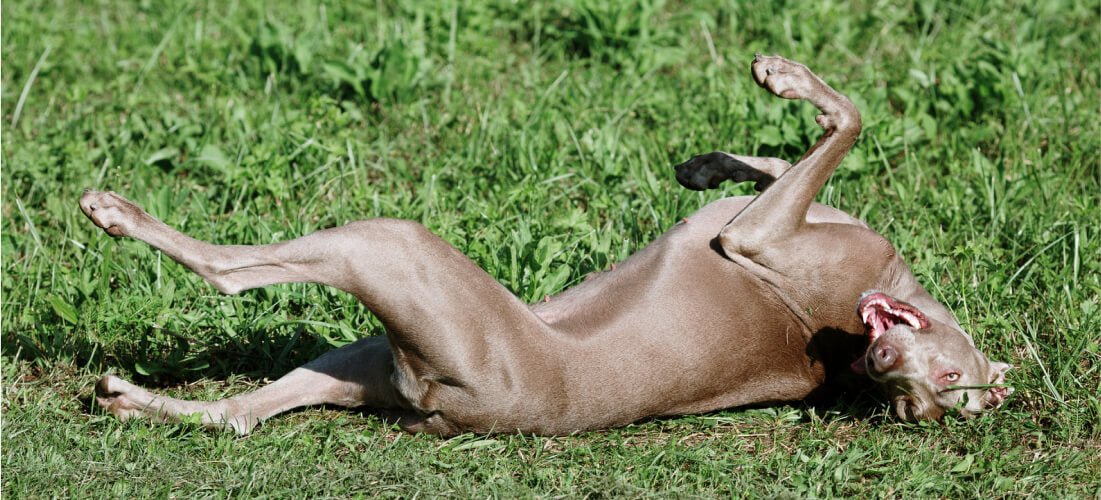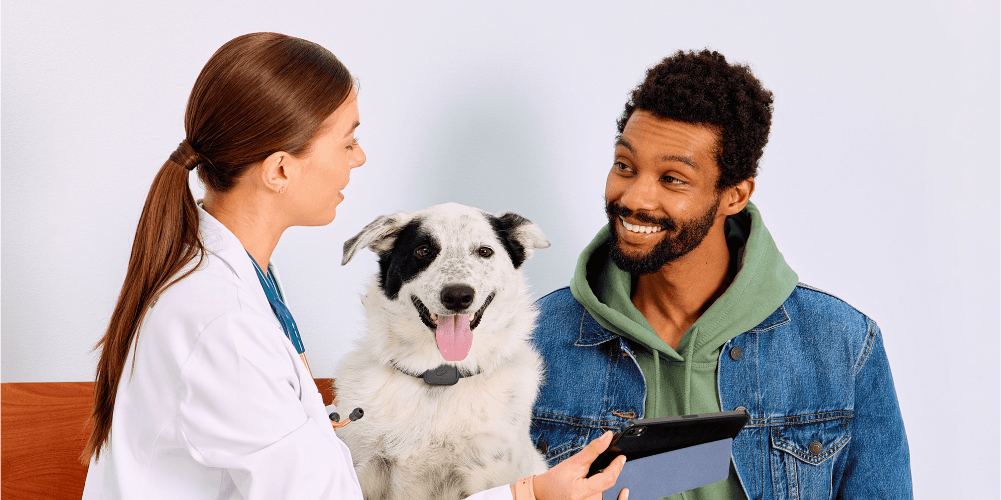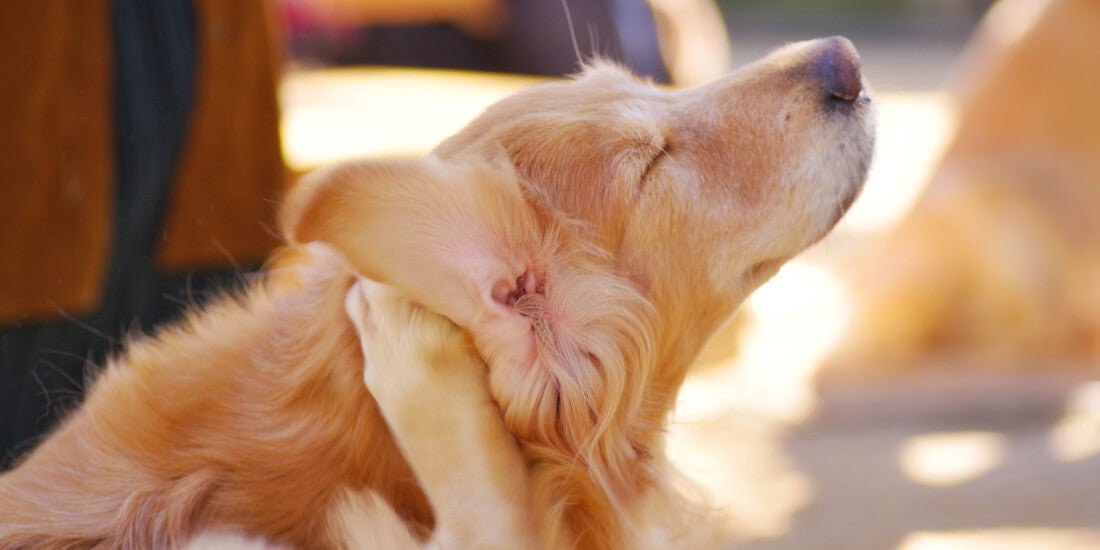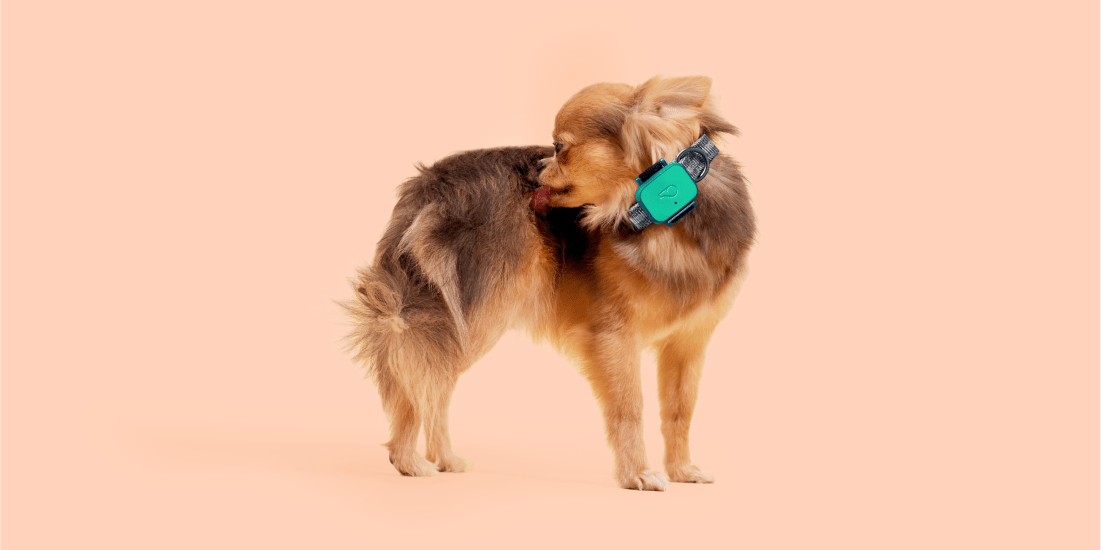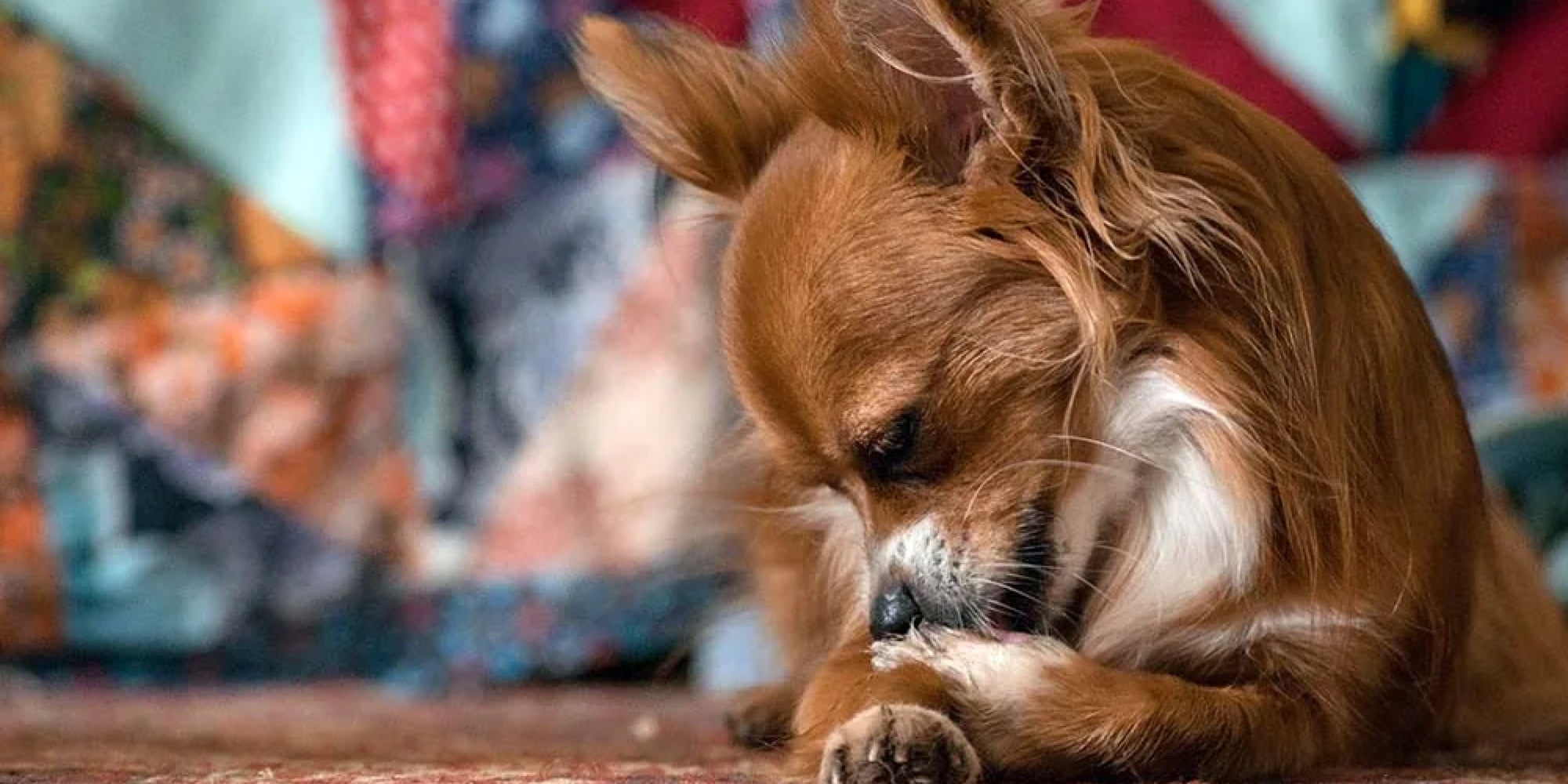7 reasons why your dog is licking so much
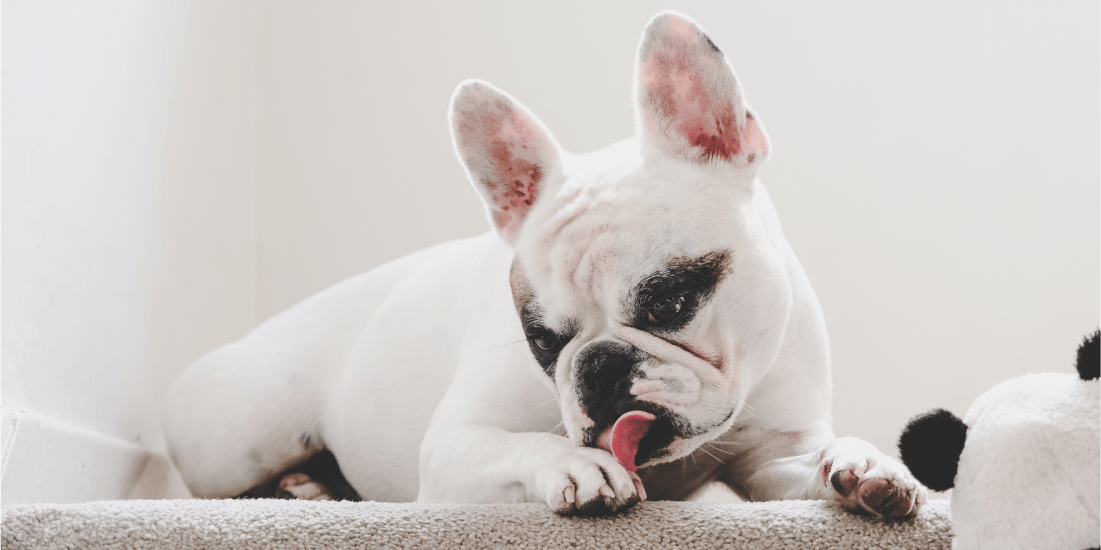
It can be hard to ignore it when your dog’s tongue is working overtime—whether they’re licking you, themselves, or that spot on the floor where you once spilled spaghetti. So why do dogs lick, anyway? And should you be concerned if your dog is suddenly licking themself way more than usual?
There’s a good reason your Whistle device tracks how much your dog has been licking themself. Self-licking can be an important metric when it comes to your dog’s health—particularly their skin health. Based on data that Pet Insight Project collected with Whistle devices, dogs with dermatological issues show 2-3x more daily self-licking than dogs with healthy skin. Elevated self-licking could be a sign of a skin issue, but there are many reasons why your dog might be licking like it’s going out of style.
Why do dogs lick?
The average dog spends more than 15 minutes per day licking. Sometimes licking serves a functional purpose—like tasting something or removing debris—while other times it could be tied to your dog’s physical or mental wellbeing.
“Licking is common with dogs, but it shouldn’t be happening all the time,” says Dr. John Iovino, DVM, Digital Health Associate Veterinarian at Kinship. “If you catch your dog giving themself a quick lick on the paw, leg, or butt, it’s nothing to be concerned about,” he says. But if you get a notification from your Whistle app that your dog’s licking levels are higher than usual, that’s worth paying attention to. All that self-licking could mean that your dog is hurt, uncomfortable, stressed, bored, or something else.
Here are some of the most common reasons why dogs lick, plus when to check in with your vet.

- They have allergies. Just like people, dogs can have allergies, too. If your pet is licking an area excessively, allergies might be to blame. Allergic reactions in dogs can be tricky to diagnose, given that they can be confused with a skin infection, according to Banfield Pet Hospital. They can also have different causes, like fleas, certain foods, and environmental allergens, including allergies to dust mites, pollen, mold, and cleaning solutions. It is important to know how to identify fleas and other pests because they can also cause skin allergies and can transmit these parasites to your dog. As for why allergies might cause your dog to lick rather than scratch, Dr. Iovino says it’s just another reflex for dogs. “Sometimes it makes more sense to your dog to lick to try to make it feel better.”
- They have a wound. It’s a “natural reaction” for dogs to lick their own wounds, Dr. Iovino says. “Psychologically, they think that by licking and even scratching, they will decrease their own pain and discomfort, but ultimately, it can make the area worse,” he says. If your dog continues to lick a wound, it could lead to an infection.
- They’re anxious or bored. Dogs will often start licking a lot because of an issue, like a skin problem or wound, Dr. Iovino says. “But the behavior can be left over after the problem is resolved because it was gratifying,” he says. If your pup is anxious or bored, they might remember how satisfying it felt to lick, and then continue licking to have something to do or a place to direct their anxious energy, Dr. Iovino says.
- They have a hot spot. Hot spots, otherwise known as acute moist dermatitis, are a common skin disorder in dogs, according to VCA Hospitals. This typically looks like a raw, red, inflamed area on the skin that can become moist and painful. Hot spots can be caused by a wide range of things, including parasites, an irritant, or flea bites. Whatever the cause, excessive licking can make it worse. “It can get infected very fast,” Dr. Iovino says.
- They’re grooming. File this under no biggie: Dogs will sometimes lick themselves for grooming purposes. “If you observe your dog licking infrequently, and it doesn’t seem to be causing them stress or quality of life issues, they’re probably just doing normal grooming behaviors,” Dr. Iovino says.
- They have anal sac disease. It’s normal for dogs to lick around the base of their tail here and there, Dr. Iovino explained. But if your dog is licking back there a lot, it could be a sign of anal sac disease (also known as anal gland disease). Your dog has two glands just inside their anal opening called anal sacs or anal glands, according to Banfield Pet Hospital. Those glands produce fluid that is used for marking territory. Under normal situations, the fluids are emptied when your dog poops, but the glands can become impacted or blocked, causing inflammation, infection, and even a ruptured gland. “It’s painful and causes a lot of pressure back there,” Dr. Iovino says. “They know it needs to be expressed but can’t do it on their own. The next step is to lick and scoot to try to relieve that pressure.”
- They have arthritis. Some of the most common symptoms of arthritis in dogs are limping, reduced activity, stiff walking, or generally slower movement, but, if your dog has arthritis in their paws, toes, or ankles, they may also lick the area to try to relieve the pain. “If you have an older dog that’s licking, especially over a joint, it’s a good idea to get an X-ray to make sure that there’s nothing there,” Dr. Iovino suggests.
When to see a vet about all that licking

While you shouldn’t hesitate to contact your vet if you have a concern about your dog’s licking, Dr. Iovino says it’s especially important to reach out if you notice the following:
- The licking has gone on for more than three days
- It’s happening at night
- It seems excessive
- There’s discharge or redness around the area
- Your dog is experiencing hair loss
- The area is crusting over
We get that you can’t have eyes on your dog at all times, and that’s why it’s helpful to use a pet wearable that will notify you about important health clues like elevated licking so that you can stay ahead of potential health issues. If you notice your dog has been licking more than usual, you can use the Whistle Chat With a Vet feature to get expert advice on what to do next, and even send your pet’s personalized Wellness Report directly to your vet
--
Korin Miller is a freelance writer specializing in general wellness and lifestyle trends, with work appearing in Prevention, Women’s Health, Yahoo, Parade, and more. She has a master’s degree from American University and lives by the beach with her family.



